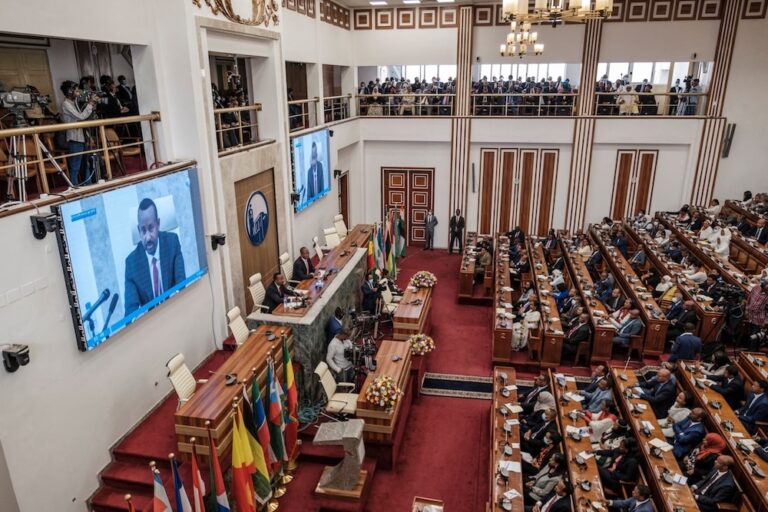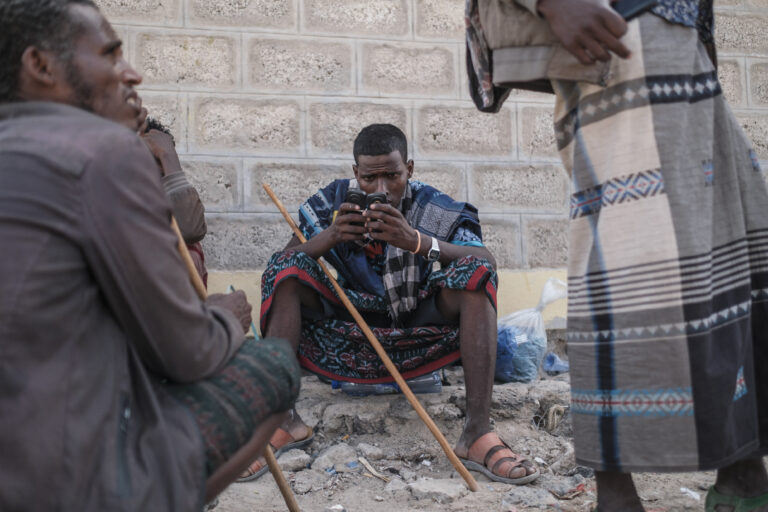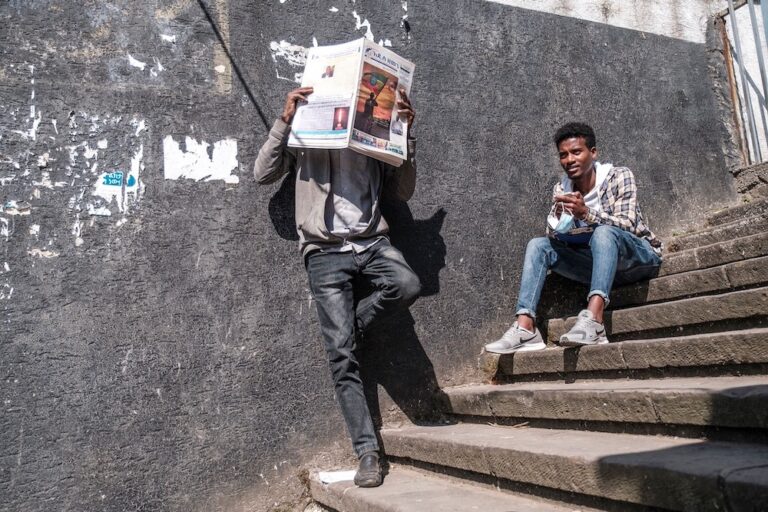Two journalists are in prison after a judge convicted them under an obsolete press law in connection with their coverage of sensitive topics.
(CPJ/IFEX) – New York, August 26, 2009 – Two Ethiopian journalists were thrown in prison on Monday after a judge convicted them under an obsolete press law in connection with coverage of sensitive topics dating back several years, according to local journalists and news reports.
Ibrahim Mohamed Ali, editor of the weekly, Muslim-oriented newspaper Salafiyya, and Asrat Wedajo, former editor of Seife Nebelbal, a now-defunct weekly that was banned amid the 2005 government crackdown on the press, have begun serving one-year sentences at Kality Prison, outside the capital, Addis Ababa. Wedajo did not have a lawyer, but Ali’s lawyer, Temam Ababulgu, told CPJ he would appeal the verdict.
Federal High Court Judge Zewdinesh Asres convicted Ali and Wedajo on several charges under Ethiopia’s criminal code and its now-obsolete Press Proclamation of 1992, according to Ababulgu. The 1992 media law was reformed as the Freedom of the Mass Media and Access to Information Proclamation, which officially took effect in December 2008, according to CPJ research.
“Prime Minister Meles Zenawi assured CPJ in 2006 that his government would end the practice of sending journalists to prison on charges dating back several years,” said CPJ Africa Program Coordinator Tom Rhodes. “But independent journalists continue to be charged and intimidated using obsolete media laws.”
Wedajo was charged in connection with a 2004 story alleging human rights violations against the ethnic Oromos, the largest ethnic group in the country.
Ali was charged in connection with a piece written by a guest columnist and published in 2007, criticizing the Ministry of Education’s proposal to restrict headscarves for female Muslim students at public education institutions, according to Ababulgu. In 2008, the editor spent nearly two weeks behind bars, along with Al-Quds Publisher Maria Kadim and Editor Ezedin Mohamed for reprinting postings from the Web site EthiopianMuslims that criticized the ministry’s proposal to restrict religious practices in public schools. A magistrate acquitted Kadim but fined Mohamed 10,000 birrs (US$800) in July, according to local journalists. Mohamed told CPJ he is returning to court in September to face more charges over coverage of religious issues.
The Ethiopian government has had a longstanding practice of reviving years-old criminal cases, some of them seemingly dormant, as a way to silence critical journalists. The practice has persisted despite Zenawi’s pledge, made to a visiting CPJ delegation in March 2006, that the government would reconsider the practice. Pending criminal charges or the possibility of criminal prosecutions now hang over at least eight more editors of Amharic-language newspapers for their coverage of political and public affairs, according to CPJ research.
Ethiopia is one of the world’s worst backsliders on press freedom, a steady decline made worse by a recent draconian anti-terror legislation.


